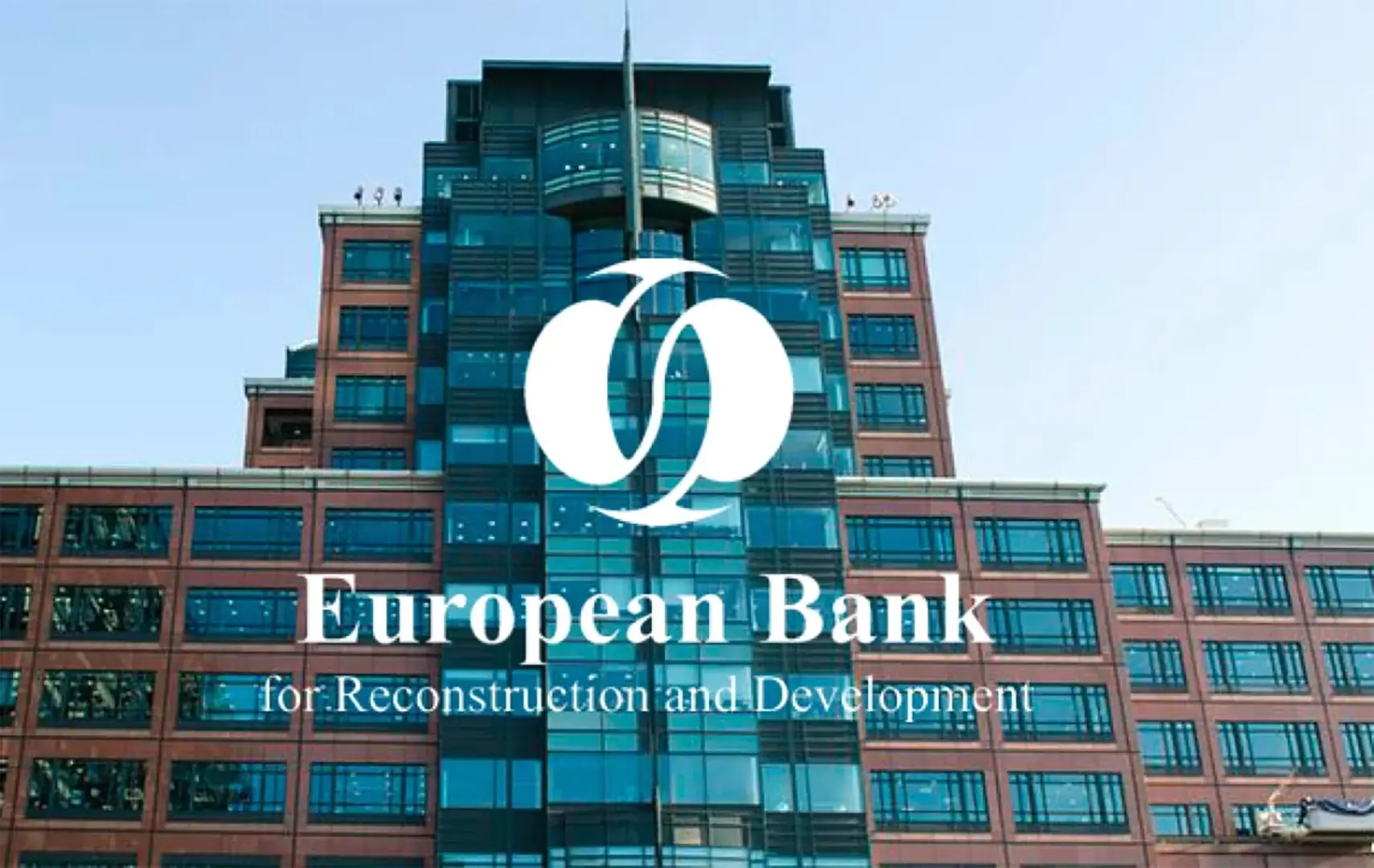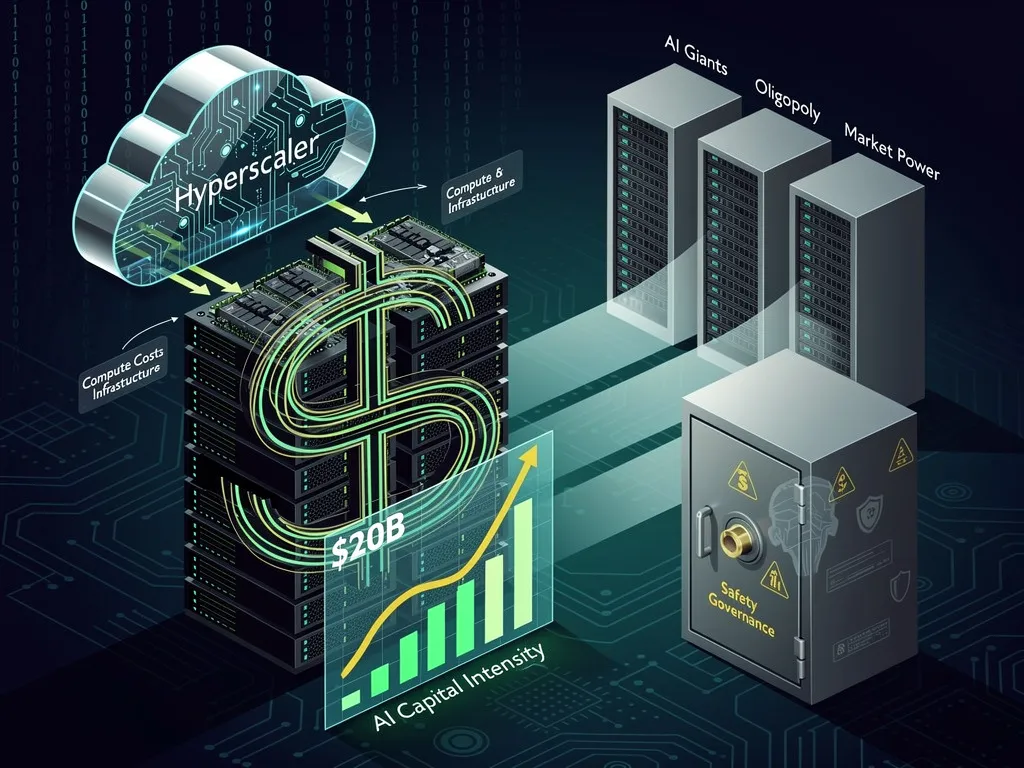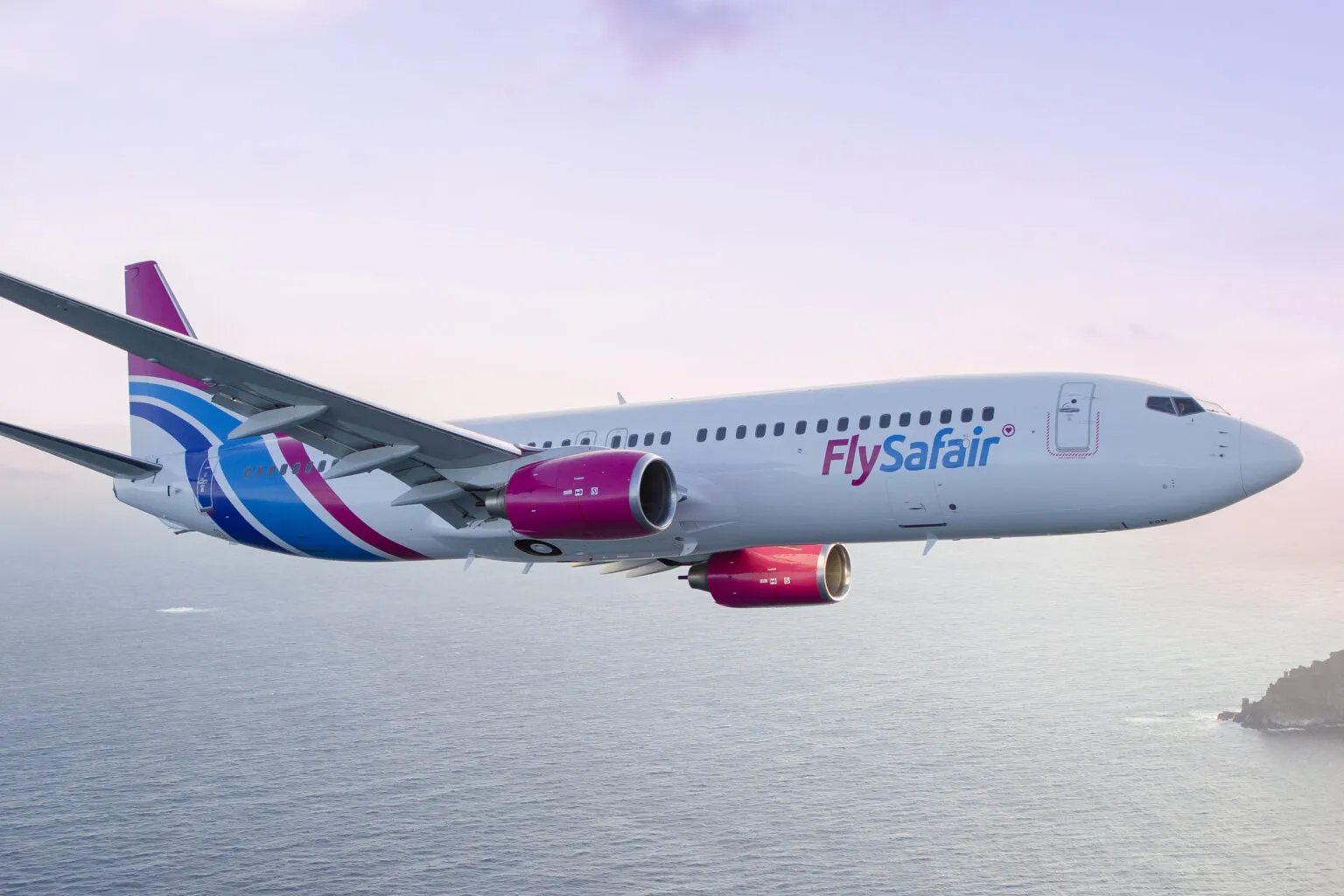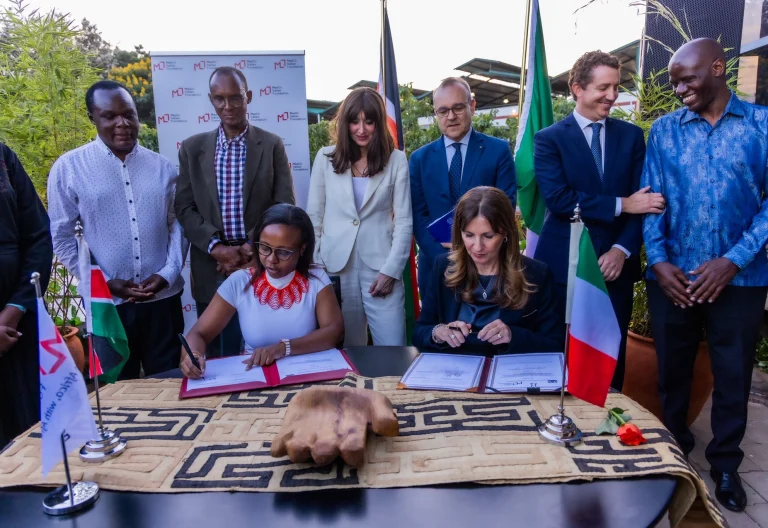In a landmark development for global development finance, Kenya and Senegal have officially become the newest shareholders of the European Bank for Reconstruction and Development (EBRD), bringing the total number of its member countries to 79. This pivotal expansion marks a significant step in the EBRD’s strategic move to extend its operations into Sub-Saharan Africa and Iraq, a decision formalized by an amendment to Article 1 of the Bank’s founding treaty, which has now officially taken effect.
The entry of these two dynamic African economies as shareholders, coupled with the formal designation of Benin, Côte d’Ivoire, and Nigeria as recipient countries, signals a new era for the EBRD. It underscores a growing recognition of Africa’s economic potential and the critical role that robust private sector development can play in driving sustainable growth across the continent.
The EBRD’s Evolving Mandate: From Post-Cold War Europe to Global Reach
The European Bank for Reconstruction and Development was established in 1991 with a singular, urgent mission: to aid the former communist countries of Central and Eastern Europe in their transition to market-oriented economies after the fall of the Berlin Wall. Its initial focus was on supporting private enterprise, fostering democratic principles, and building the institutional frameworks necessary for open markets. Over three decades, the EBRD has invested over €210 billion in more than 7,500 projects, playing a historic role in the economic transformation of its regions of operation, which expanded to include Central Asia and the Southern and Eastern Mediterranean.
Uniquely among multilateral development banks, the EBRD has a political mandate, requiring recipient countries to be “committed to and applying the principles of multi-party democracy and pluralism.” This dual focus on economic transition and democratic governance has been a cornerstone of its operations. Its core mandate involves a combination of investment, advisory work, and policy reform, all geared towards developing the private sector and bringing about sustainable change.
In recent years, the EBRD has refined its strategic priorities to address contemporary global challenges. Its current focus is on helping all EBRD economies become “greener, more inclusive, and more digital.” This involves a strong emphasis on the Green Economy Transition (GET) approach, aiming to ensure that the majority of its business volume is green and that all projects align with the Paris Agreement. Furthermore, the Bank is deeply committed to supporting Ukraine, particularly in its recovery and reconstruction efforts, a priority that has taken on immense urgency.
The Game-Changing Amendment to Article 1
The decision to expand the EBRD’s geographical scope was a monumental undertaking, culminating at the Bank’s 2023 Annual Meeting in Samarkand. Historically, Article 1 of the Agreement Establishing the EBRD strictly defined its “countries of operation” to regions impacted by the post-Cold War transition. To venture into new territories like Sub-Saharan Africa and Iraq, a formal amendment, requiring broad shareholder consensus, was essential.
The approval of this amendment by the Board of Governors in May 2023 was a testament to the evolving global economic landscape and the recognition that the EBRD’s unique expertise in private sector-led transition could be highly beneficial in other emerging markets. The “threshold in terms of shareholders’ acceptance” for this amendment to take effect was finally reached in April 2025, and the amended Article 1 has now formally entered into force. This legal and procedural milestone unlocks the door for the EBRD to begin its investment activities in these new regions.
Following this critical amendment, Benin, Côte d’Ivoire, and Nigeria have now formally transitioned into “recipient countries.” This means they are eligible to receive EBRD investments, advisory services, and benefit from its policy dialogue, marking the initial wave of the Bank’s direct engagement in Sub-Saharan Africa.
EBRD President Odile Renaud-Basso expressed her enthusiasm, stating, “I am delighted to welcome Kenya and Senegal as shareholders of the Bank. This is a pivotal step towards beginning our investments in Sub-Saharan Africa, and we are committed to starting work in the region this year. We look forward to leveraging our expertise to drive sustainable economic growth through robust private-sector development and meaningful policy dialogue.” Her statement underscores the Bank’s readiness to translate its expanded mandate into tangible projects on the ground.
Kenya’s Strategic Entry: Deepening Global Financial Integration
Kenya’s journey to becoming an EBRD shareholder began with its formal request in March 2024, swiftly followed by the Board of Governors’ approval in May 2024. For Kenya, this membership is more than just symbolic; it represents a significant validation of its economic reforms and a strategic move to deepen its integration into the global financial architecture.
John Mbadi Ng’ongo, Kenya’s Cabinet Secretary for the National Treasury and Economic Planning, articulated this sentiment, emphasizing that the development “marks a significant milestone in the country’s deepening integration into the global financial architecture and reflects renewed international confidence in Kenya’s macroeconomic trajectory and institutional reform agenda.”
Kenya’s Economic Landscape and Potential Impact
Kenya stands as East Africa’s largest economy and a regional economic powerhouse. Over the past decade, it has demonstrated robust economic growth, driven by a dynamic private sector, a burgeoning technology scene, and significant investments in infrastructure. However, like many emerging economies, Kenya faces challenges including high public debt, vulnerability to external shocks, and the need to create sufficient jobs for its rapidly growing young population. The World Bank projects Kenya’s real GDP growth to gradually pick up to 4.5% in 2025, reaching around 5.0% in 2026-27.
EBRD’s involvement is expected to provide several key benefits:
- Enhanced Investor Confidence: Membership in a prestigious institution like the EBRD sends a strong signal to international investors about Kenya’s commitment to market principles, good governance, and a stable investment climate. This can attract increased foreign direct investment (FDI), which is crucial for job creation and economic diversification.
- Access to Expertise and Financing: Kenya will gain access to the EBRD’s extensive financial products, including loans, equity investments, and guarantees, tailored for the private sector. Beyond finance, the Bank’s advisory services and technical assistance can help strengthen local businesses, improve corporate governance, and facilitate technology transfer.
- Support for Key Sectors: The EBRD’s focus areas align well with Kenya’s development priorities. This includes:
- Renewable Energy: Kenya is a leader in geothermal energy, and EBRD’s expertise in green finance can further accelerate investments in solar, wind, and geothermal projects, supporting Kenya’s transition to a greener economy.
- Infrastructure: While the EBRD primarily focuses on private sector, it can support public-private partnerships (PPPs) in critical infrastructure development, such as transport, energy transmission, and municipal services.
- Small and Medium-sized Enterprises (SMEs): SMEs are the backbone of Kenya’s economy, and EBRD’s programs often target these businesses through local financial institutions, providing access to finance and business development support.
- Digital Transformation: With a vibrant tech ecosystem, Kenya stands to benefit from EBRD’s digital transition strategy, fostering innovation and expanding digital services.
- Policy Dialogue: The EBRD engages in policy dialogue with governments to improve the business environment, strengthen legal frameworks, and promote reforms that enhance market functionality and transparency. This collaborative approach can support Kenya’s ongoing institutional reform agenda.
Senegal’s Strategic Turning Point: Bolstering Sustainable Growth
Senegal’s application to join the EBRD came in October 2023, with its membership approved in February 2024. For Senegal, this marks a “strategic turning point for the country’s international influence and the expansion of its economic partnerships,” as stated by Cheikh Diba, Senegal’s Minister of Finance and Budget. He further highlighted that it “demonstrates, once again, the renewed confidence in our country.”
Senegal’s Economic Trajectory and EBRD’s Role
Senegal has experienced robust economic growth in recent years, driven by sectors such as agriculture, mining, and services. The country is also on the cusp of becoming a significant oil and gas producer, with major offshore projects expected to come online in the near future. The IMF projects Senegal’s GDP to expand by 8.4% in 2025, potentially making it Sub-Saharan Africa’s fastest-growing economy.
EBRD’s engagement in Senegal will likely focus on:
- Diversification and Private Investment: While the emerging oil and gas sector will bring significant revenue, Senegal recognizes the need for economic diversification. The EBRD’s emphasis on private investment can help foster growth in non-oil sectors, creating a more resilient and balanced economy.
- Sustainable Infrastructure: Investments in renewable energy (solar, wind), sustainable agriculture, and urban infrastructure will be key. This aligns with Senegal’s commitment to sustainable growth and the EBRD’s green economy transition mandate.
- Financial Sector Development: Strengthening local financial institutions and capital markets will be crucial for channeling finance to businesses of all sizes, from large corporations to micro-enterprises.
- Regional Integration: Senegal’s strategic location in West Africa makes it a potential hub for regional trade and investment. EBRD can support projects that enhance connectivity and facilitate cross-border economic activity.
By joining the EBRD, Senegal aims to strengthen its commitment to sustainable growth, supported by private investment for the systemic transformation of its economic fabric. This partnership is expected to attract new sources of capital and expertise, accelerating the country’s development agenda.
EBRD’s Modus Operandi in New Regions: Investment, Advisory, and Policy
The EBRD’s approach to fostering transition and development is multifaceted, combining financial investment with strategic advisory services and high-level policy dialogue. This integrated model is what differentiates it from purely lending institutions.
Investment Tools and Focus
The EBRD provides project financing primarily to the private sector, but also supports public-private partnerships. Its financial products include:
- Loans: Both direct loans to companies and financial institutions, and indirect lending through local banks to SMEs.
- Equity Investments: Taking direct stakes in companies to provide long-term capital and support growth.
- Guarantees: Providing risk mitigation for commercial banks and investors, encouraging private capital flows into challenging markets.
The Bank typically invests across a range of sectors, including energy, financial institutions, food and agribusiness, manufacturing and services, municipal infrastructure, natural resources, real estate, telecommunications, media and technology, and transport. In its new Sub-Saharan African countries of operation, the focus will be on projects that align with the “greener, more inclusive, and more digital” strategic themes. This means prioritizing investments in renewable energy, energy efficiency, digital infrastructure, and projects that promote gender equality and economic inclusion.
Advisory Services and Policy Dialogue
Beyond direct financing, a crucial component of the EBRD’s work is its advisory services and policy engagement. The Bank works closely with governments to:
- Improve the Business Environment: Advising on legal and regulatory reforms that enhance transparency, reduce bureaucracy, and strengthen property rights.
- Strengthen Institutions: Providing technical assistance to build the capacity of local financial institutions, regulatory bodies, and public administration.
- Promote Good Governance: Encouraging corporate governance best practices and combating corruption to create a more attractive investment climate.
- Facilitate Market Development: Helping to develop local capital markets, foster competition, and support the growth of new industries.
This policy dialogue is particularly important in emerging markets, where institutional weaknesses can be a significant barrier to private sector development.
Broader Implications for Sub-Saharan Africa: Bridging the Investment Gap
The EBRD’s expansion into Sub-Saharan Africa is a significant development for the continent as a whole. Africa faces a substantial infrastructure and investment gap, estimated at hundreds of billions of dollars annually. While institutions like the African Development Bank Group (AfDB) and the World Bank Group are key players, the scale of the continent’s development needs requires diverse sources of finance and expertise.
EBRD’s entry brings a new player with a specific mandate and a proven track record in private sector development and transition economies. It complements the work of existing development finance institutions by:
- Focusing on Private Sector: The EBRD’s strong emphasis on private sector-led growth can catalyze additional commercial investment, rather than solely relying on public funds.
- Bringing Transition Expertise: Its experience in guiding economies through complex reforms, strengthening market institutions, and promoting good governance is highly relevant to many African nations.
- Promoting Green Transition: With its robust GET strategy, the EBRD can accelerate Africa’s shift towards renewable energy and climate-resilient development, aligning with global climate goals.
- Fostering Regional Integration: By operating in multiple countries within the region, the EBRD can support cross-border projects and initiatives that enhance regional trade and economic integration.
EBRD President Renaud-Basso’s commitment to “starting work in the region this year” signals a proactive approach, indicating that the Bank will move swiftly to identify and implement projects in its new recipient countries. This rapid deployment will be crucial for demonstrating tangible impact and building momentum for further engagement.
Challenges and Opportunities Ahead
While the expansion is met with optimism, the EBRD will undoubtedly face unique challenges in its new operating environment:
- Navigating New Regulatory and Legal Frameworks: Each country has its own specific legal and regulatory landscape, requiring careful adaptation of EBRD’s operational models.
- Political and Economic Risks: Sub-Saharan Africa, while offering immense opportunities, can also present higher political and economic risks compared to some of EBRD’s traditional regions.
- Capacity Building: Ensuring that local partners and institutions have the capacity to absorb and effectively utilize EBRD’s investments and advisory services will be critical.
- Competition and Coordination: Operating alongside numerous other development banks and private investors will require careful coordination to avoid duplication and maximize impact.
- Environmental and Social Safeguards: As highlighted by some observers, the EBRD will need to ensure its robust environmental and social policies are rigorously applied and enforced in these new contexts to prevent unintended harm and ensure sustainable development.
Despite these challenges, the opportunities are immense. Sub-Saharan Africa boasts a rapidly growing population, a burgeoning youth demographic, increasing urbanization, and vast untapped potential in renewable energy, agriculture, and digital innovation. The EBRD’s expertise in fostering market economies and sustainable development is well-suited to help unlock this potential.
Conclusion: A Vision for Shared Prosperity
The formal entry of Kenya and Senegal as shareholders, and the activation of new recipient countries in Sub-Saharan Africa, marks a truly historic moment for the European Bank for Reconstruction and Development. It signifies a bold expansion of its mandate, reflecting a global shift towards broader cooperation in addressing development challenges.
This move is not merely about financial transactions; it’s about forging deeper partnerships, sharing expertise, and fostering an environment where private enterprise can flourish, leading to sustainable economic growth and improved livelihoods. As the EBRD leverages its unique model of investment, advisory work, and policy reform, it stands poised to play a transformative role in the economic trajectories of Kenya, Senegal, and indeed, the wider Sub-Saharan African region. The world watches as this European institution extends its hand, aiming to build greener, more inclusive, and more digital economies across a new frontier.
Ready to take your career to the next level? Join our dynamic courses: ACCA, HESI A2, ATI TEAS 7 , HESI EXIT , NCLEX – RN and NCLEX – PN, Financial Literacy!🌟 Dive into a world of opportunities and empower yourself for success. Explore more at Serrari Ed and start your exciting journey today! ✨
Photo source: Google
By: Montel Kamau
Serrari Financial Analyst
24th July, 2025
Article, Financial and News Disclaimer
The Value of a Financial Advisor
While this article offers valuable insights, it is essential to recognize that personal finance can be highly complex and unique to each individual. A financial advisor provides professional expertise and personalized guidance to help you make well-informed decisions tailored to your specific circumstances and goals.
Beyond offering knowledge, a financial advisor serves as a trusted partner to help you stay disciplined, avoid common pitfalls, and remain focused on your long-term objectives. Their perspective and experience can complement your own efforts, enhancing your financial well-being and ensuring a more confident approach to managing your finances.
Disclaimer: This article is for informational purposes only and does not constitute financial advice. Readers are encouraged to consult a licensed financial advisor to obtain guidance specific to their financial situation.
Article and News Disclaimer
The information provided on www.serrarigroup.com is for general informational purposes only. While we strive to keep the information up to date and accurate, we make no representations or warranties of any kind, express or implied, about the completeness, accuracy, reliability, suitability, or availability with respect to the website or the information, products, services, or related graphics contained on the website for any purpose. Any reliance you place on such information is therefore strictly at your own risk.
www.serrarigroup.com is not responsible for any errors or omissions, or for the results obtained from the use of this information. All information on the website is provided on an as-is basis, with no guarantee of completeness, accuracy, timeliness, or of the results obtained from the use of this information, and without warranty of any kind, express or implied, including but not limited to warranties of performance, merchantability, and fitness for a particular purpose.
In no event will www.serrarigroup.com be liable to you or anyone else for any decision made or action taken in reliance on the information provided on the website or for any consequential, special, or similar damages, even if advised of the possibility of such damages.
The articles, news, and information presented on www.serrarigroup.com reflect the opinions of the respective authors and contributors and do not necessarily represent the views of the website or its management. Any views or opinions expressed are solely those of the individual authors and do not represent the website's views or opinions as a whole.
The content on www.serrarigroup.com may include links to external websites, which are provided for convenience and informational purposes only. We have no control over the nature, content, and availability of those sites. The inclusion of any links does not necessarily imply a recommendation or endorsement of the views expressed within them.
Every effort is made to keep the website up and running smoothly. However, www.serrarigroup.com takes no responsibility for, and will not be liable for, the website being temporarily unavailable due to technical issues beyond our control.
Please note that laws, regulations, and information can change rapidly, and we advise you to conduct further research and seek professional advice when necessary.
By using www.serrarigroup.com, you agree to this disclaimer and its terms. If you do not agree with this disclaimer, please do not use the website.
www.serrarigroup.com, reserves the right to update, modify, or remove any part of this disclaimer without prior notice. It is your responsibility to review this disclaimer periodically for changes.
Serrari Group 2025
















